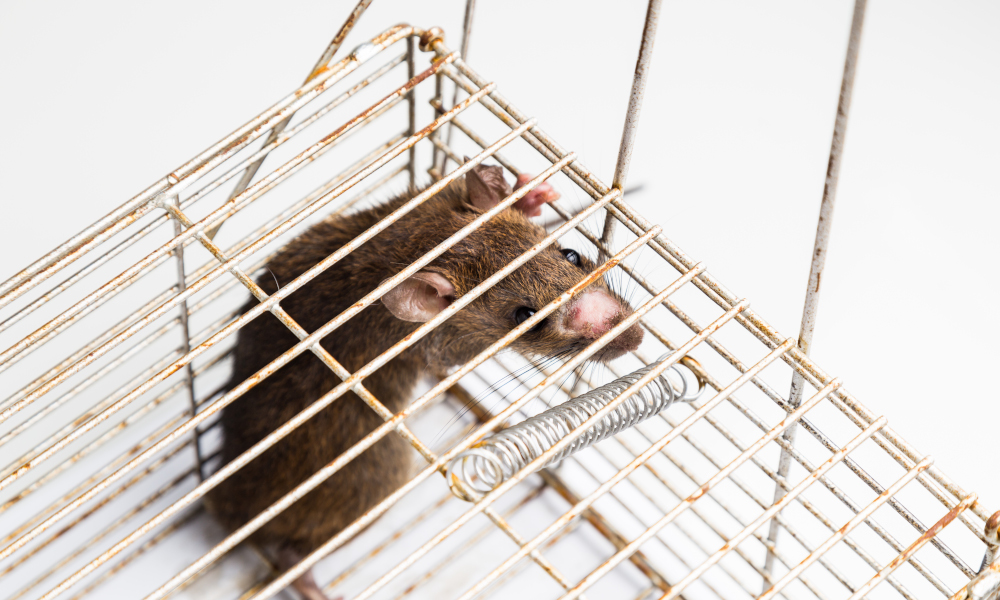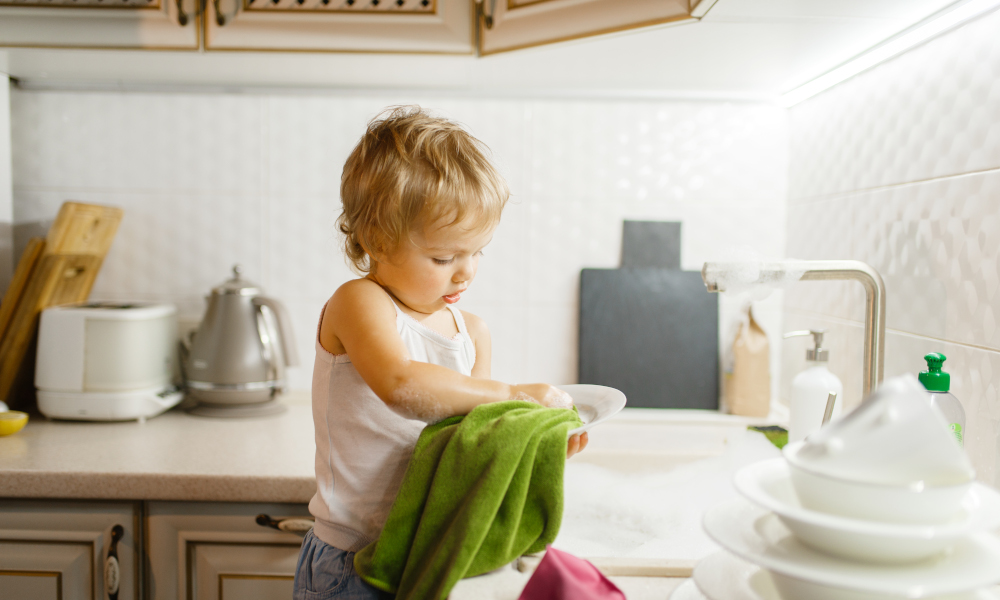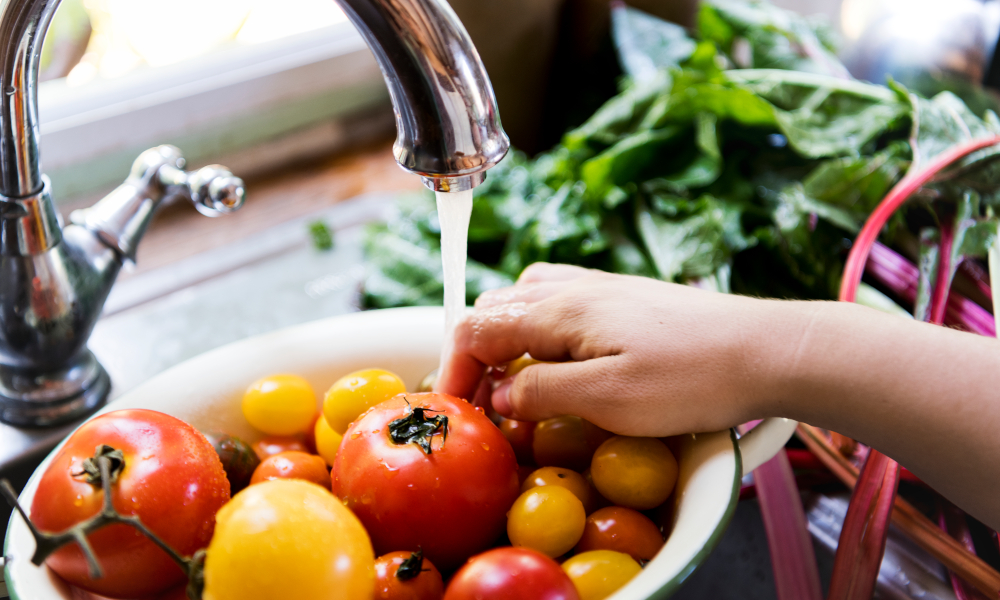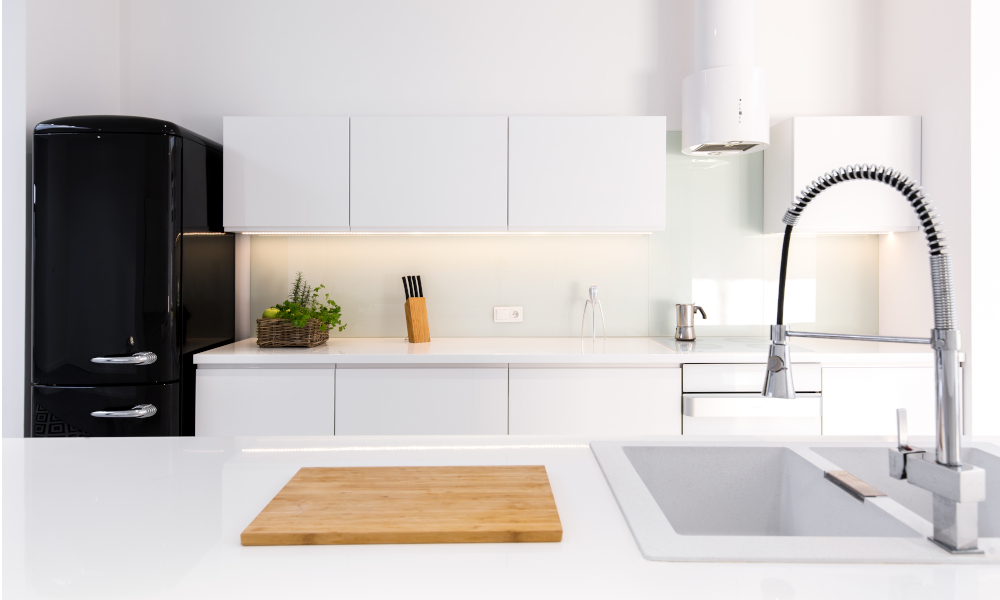The kitchen is the main place for food preparation. Wet produce like meat is prone to bacteria and fungi spores. If not handled with care, it is possible to contaminate your kitchen surface and food. Keeping a germ-free kitchen is important to prevent food poisoning and falling ill from being infected by other types of pathogens.
Below are 10 practical ways to maintain a germ-free kitchen.
1. Wash Your Hands Before Preparing Food
This is the number one criterion before any food preparation. Your hands are constantly touching various objects and performing all types of activity that may expose them to harmful microbes.
By washing your hands, you are eliminating the risk of contaminating your food, especially if you’re preparing fresh vegetables and fruits for salad.
2. Take the Trash Out Daily
If you have thrown raw food into your trash can, it will rot in no time. Not only does rotting food emit a foul stench, but it also harbours bacteria and attracts pests like ants, roaches, and rats.

Pests like rats carry diseases that are unwelcome to any home. Skip the headache of having to manage an overnight infestation and living with a bad odour wafting throughout the house.
Take your trash out as daily or as soon as it reeks.
3. Keep Sponges Dry When Not in Use
Have you noticed that sponges that are left to soak in water start to emit a foul smell?
When you use the sponge to clean, food particles get caught in between the sponge fibers. If left unchecked, bacteria will start to grow when food starts to rot, aided by moisture.
While removing all food particles from the sponge is impossible, but it’s possible to keep the sponge dry. Give it a squeeze after every wash and let it air dry. With lesser moisture, bacteria won’t multiply so fast.
If you want to take a step further, try soaking it in vinegar for 5 minutes and rinsing it again. Another method is to pour boiling water over your sponge to kill bacteria.
4. Wash Your Dish Towel, Rags and Hand Towels with Warm Water

Your towels harbour bacteria because it is constantly damp. Whether you are wiping your hands, dishes or cleaning various surfaces, it is easy to transfer bacteria from one place to another.
Soak your dishcloths in warm soapy water after every use to kill germs.
5. Separate Cutting Boards for Meat and Vegetables
Your cutting board is a perfect hiding spot for fungi spores, bacteria and viruses. Germs can easily seep in between cracks and cutting indentations, contaminating your food whenever you use it.
It is advisable to separate your cutting boards for meat. This prevents vegetables and fruits that are eaten fresh from getting contaminated by harmful bacteria such as salmonella and E. coli.
Wash your cutting board with soap and warm water after every use to remove any residue. When your board gets worn out with lots of knife marks and scratches, discard it immediately.
6. Rinse Your Fruits and Vegetables

Vegetables and fruits should always be given a rinse before eating or cooking. There could be traces of soil, bugs or even germs from cross-contamination that could be lingering on these greens.
7. Clean Your Kitchen Sink After Every Use
Just like cleaning your plates, your kitchen sink deserves to be cleaned too. Food, spills, debris and grime get lodged around your sink during washing and prepping.
It left uncheck, your sink will be a germ haven in no time. Make sure to give it a good scrub and a rinse at least once a day. Read our article to learn how to care for your stainless-steel kitchen sink.
8. Declutter and Disinfect Your Kitchen Countertop

Remove all unnecessary items from your countertop. Don’t let it clutter with receipts, bills, keys, and groceries. This makes cleaning your countertop easier and more effective.
Besides wiping up spills and decluttering, your countertop needs to be disinfected to remove germs that may have gotten on board. Imagine if someone sneezes or leaves a germy half-eaten biscuit on the surface. And later, you put a rinsed fruit on the same spot. That’s how easily germs spread.
If you are shopping for new countertops, hygiene is an important feature to consider. NFS-certified quartz countertops from Aurastone are bacteria resistant.
9. Wipe Down Your Stove Knobs, Cabinet Handles, Switches and Faucets
Everything that your hand touches need to be cleaned and sanitised. While you are cooking, preparing food or cleaning the dishes, it is common to multitask.
You may be handling raw meat, and without washing your hands, proceed to turn on the stove or open the cabinet to grab some seasoning. Or perhaps your hands might be greasy from cooking, and you turn on the tap.
It only makes sense to clean all these common surfaces to ensure there is no residue for germs to breed.
10. Do Not Store Wet Utensils in an Enclosed-Cabinet or Drawer
Make sure your utensils and cookware are completely dried before storing them. Use a clean dish towel to wipe off the water and air dry them in the open. If you have a heated dish dryer, it’s even better because it saves time.
Similar to water leakages under the sink, a damp environment is a breeding ground for mould.
Practical Tips for a Germ-Free Kitchen for Everyone
The best way to keep a germ-free kitchen is to clean up right after cooking. This is a very practical approach to hygiene, especially for busy homeowners.
In a time where there is a pandemic, hygiene plays a large role in minimising the risk of falling ill. Keep clean and stay safe everyone.



